Expertise provided by Kevin Matthews from buildingbread.com
What is a Financial Stock?
A financial stock provides capital services to its customers. These could be people, businesses, organizations, or even governments. Capital services can be very broad but some key activities are the cornerstones of financial stocks.
Bank Deposits and Loans
Bank deposits are a key service provided by banks. This service allows depositors to safely store their capital and also get insurance on its safety by getting guarantees from the government on their deposits and also minimizing risk of theft by pooling their deposits with other depositors.
Banks then use the bulk of the deposits to provide loans to different entities. These loans can range from car loans to house loans all the way to business loans or even short term loans to other banks.
Payment Transactions
Companies like MasterCard (MA), Visa (V), and American Express (AXP) provide payment networks to help rapidly facilitate payment transactions. These companies provide fraud protection and payment protection for unauthorized transactions.
These payment networks also provide temporary capital liquidity by giving user's credit, adding to the purchasing power of individuals and businesses.
Why Buy a Financial Stock?
Financial stocks can provide returns that exceed the overall market. They are drivers of business and commerce. When the stock market goes up, financial stocks will typically move with a higher beta than the overall market.
Strong financial stocks will typically provide stable growth over multiple years. These stocks may have a fortress balance sheet or a niche regional market.
What Makes a Financial Stock Go Up?
The rise in a financial stock's price is influenced by a combination of fundamental, technical, and market sentiment factors. Fundamentally, strong earnings reports, revenue growth, and profitability are key drivers. When a financial company demonstrates consistent performance, such as increasing net income or expanding its market share, investors gain confidence, leading to higher demand for its stock. Additionally, favorable economic conditions, like low interest rates or a robust credit market, can boost financial stocks by improving lending and investment opportunities.
Technical factors, such as trading volume and historical price patterns, also play a role. For instance, if a stock breaks through a resistance level, it may attract more buyers, pushing the price higher. Market sentiment, driven by investor psychology, news, and broader economic trends, can amplify these effects. Positive sentiment, such as optimism about the financial sector's growth, often leads to increased buying activity. Ultimately, a financial stock's price reflects the interplay of these factors, with supply and demand dynamics determining its value at any given time.
Are Financial Stocks Risky?
Financial stocks can be risky due to several factors. They are highly sensitive to economic conditions, such as interest rate changes, inflation, and market downturns, which can impact their profitability. Regulatory changes and compliance requirements also pose risks, as financial institutions must adapt to evolving laws and policies. Additionally, financial stocks may face credit risks, where borrowers default on loans, and liquidity risks, which can affect their ability to meet short-term obligations.
Market volatility is another concern, as financial stocks can experience significant price fluctuations during periods of uncertainty. However, these risks can be mitigated through diversification and thorough research. By understanding the financial health, management quality, and market position of a company, investors can make informed decisions and balance potential rewards with risks.
Do Financial Stocks do Well in a Recession?
Financial stocks often face challenges during a recession due to their sensitivity to economic conditions. As lending slows and consumer spending declines, banks and financial institutions may experience reduced profitability. Additionally, credit risks increase as borrowers struggle to repay loans, and market volatility can impact investment portfolios managed by financial firms. However, certain financial stocks, such as those in defensive sectors or companies with strong balance sheets, may perform relatively well by maintaining stability and offering consistent dividends.
Investors looking to navigate recessions with financial stocks should focus on companies with diversified revenue streams and robust risk management practices. Staying informed about market trends and regulatory changes can also help identify opportunities in the financial sector during economic downturns. While financial stocks may not always thrive in a recession, strategic selection and diversification can mitigate risks and position investors for long-term growth.
Do Financial Stocks Benefit From Inflation?
Financial stocks can benefit from inflation under certain conditions, particularly when interest rates rise in response to inflationary pressures. Banks and other financial institutions often experience increased profitability as higher interest rates lead to larger spreads between the rates they charge borrowers and the rates they pay to depositors. This dynamic can boost revenue for companies involved in lending, mortgages, and credit services. Additionally, insurance companies may see gains as rising rates improve their investment portfolios, which are often tied to fixed-income securities.
However, the extent of the benefit depends on the severity of inflation and its impact on the broader economy. Excessive inflation can lead to economic instability, affecting consumer spending and borrowing, which are crucial drivers for financial stocks. Investors should focus on companies with strong balance sheets and diversified revenue streams to navigate the complexities of inflation. Staying informed about economic trends and monetary policies can help identify financial stocks poised to thrive in inflationary environments.
How are Financial Stocks Affected by Interest Rates?
Financial stocks are significantly influenced by changes in interest rates, as these rates directly impact their core business operations. When interest rates rise, banks and financial institutions often benefit from increased net interest margins—the difference between the interest they earn on loans and the interest they pay on deposits. Higher rates also attract more investment in fixed-income securities, boosting revenues for financial firms. On the other hand, elevated borrowing costs may reduce loan demand, which can limit growth in lending activities.
Conversely, declining interest rates can negatively affect financial stocks by compressing net interest margins, impacting profitability. However, lower rates may stimulate borrowing and consumer spending, which can offset some of these challenges. The extent of the impact varies across different financial sectors, with companies specializing in lending, insurance, and asset management showing varying degrees of sensitivity to rate changes. Investors looking to navigate these dynamics should monitor central bank policies and market trends to make informed decisions about financial stocks in shifting interest rate environments.
Is it Smart to Invest in Bank Stocks?
Investing in bank stocks can be a smart decision, particularly for those seeking exposure to the financial sector's stability and growth potential. Banks often generate consistent revenue from lending, deposits, and financial services, making them appealing during periods of economic expansion. Additionally, many bank stocks pay dividends, providing investors with a steady income stream. Banks also benefit from rising interest rates, as they can increase net interest margins, boosting profitability. These factors make bank stocks a valuable addition to a diversified portfolio.
However, investing in bank stocks comes with risks that should be carefully considered. Banks are highly sensitive to economic cycles and can be affected by factors such as credit risks, regulatory changes, and market volatility. To minimize risk, investors should focus on banks with strong balance sheets, well-diversified revenue streams, and robust risk management practices. Conducting thorough research on the bank's financial performance and understanding market trends can help make informed investment decisions. With careful analysis and a long-term perspective, bank stocks can play a key role in a resilient and rewarding investment strategy.
What to Look for in Financial Stocks?
When evaluating financial stocks, it's important to focus on key factors that indicate stability, growth potential, and resilience. Start by analyzing the company's financial health, including metrics like revenue growth, profitability, and return on equity (ROE). Look for firms with strong balance sheets and consistent earnings performance, as these are indicative of solid management and adaptability to market conditions. Understanding the company's business model and revenue streams—such as lending, investment management, or insurance—can provide insight into its competitive advantage within the financial sector.
In addition to financial metrics, consider external factors like economic trends and interest rate sensitivity, as these can heavily influence financial stocks. Assess the company's risk management practices and regulatory compliance to ensure it operates with stability in diverse economic environments. Dividend-paying financial stocks can also be appealing, providing an income stream alongside potential long-term capital growth. By combining thorough research with a focus on diversification, investors can identify financial stocks that align with their goals and risk tolerance.
Final Thoughts
Financial stocks offer diverse opportunities for investors, with their performance often tied to economic trends, interest rates, and inflation. By understanding the key drivers, such as net interest margins, credit risks, and regulatory changes, investors can make informed decisions about this dynamic sector. While financial stocks can be sensitive to market fluctuations, focusing on companies with strong balance sheets, consistent earnings, and robust risk management practices can mitigate risks and enhance long-term growth potential.
Whether you're considering bank stocks, exploring the effects of interest rates, or evaluating dividend-paying financial firms, thorough research and strategic diversification are crucial. By staying informed about industry trends and aligning your investments with your financial goals, you can confidently navigate the opportunities and challenges presented by financial stocks in a constantly evolving market.





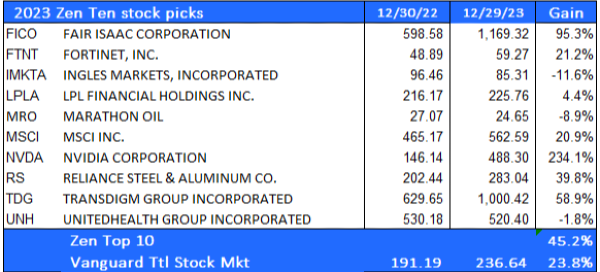
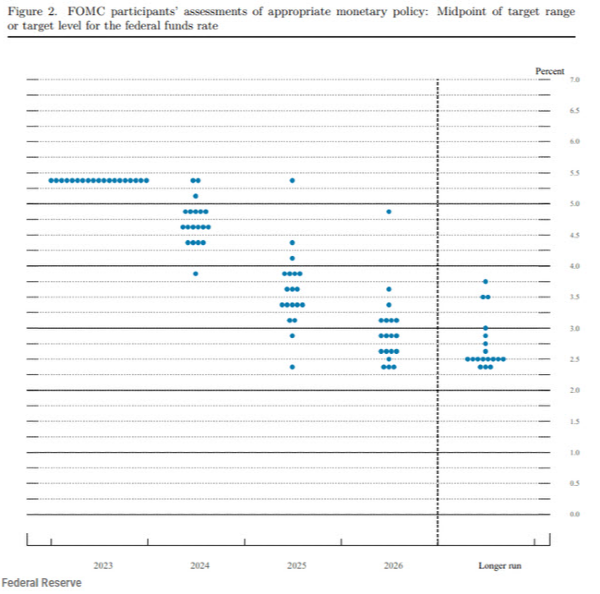
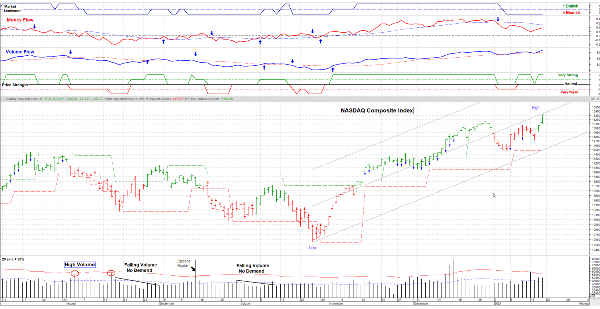



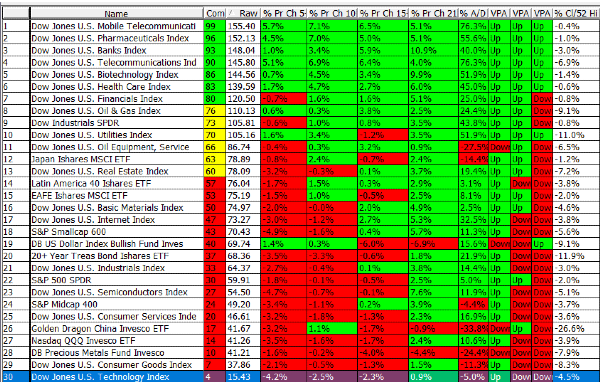
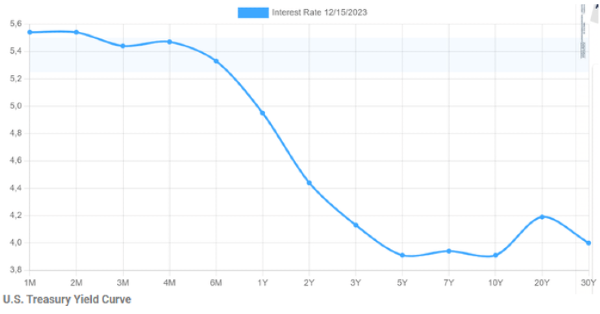

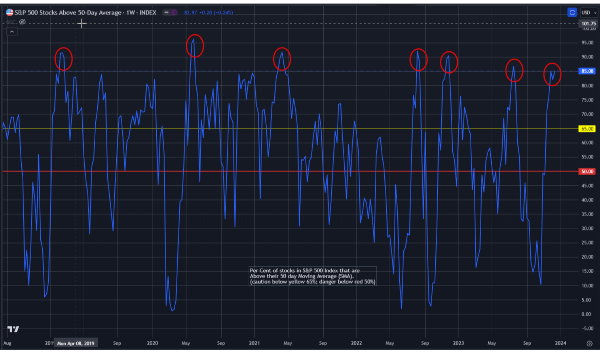


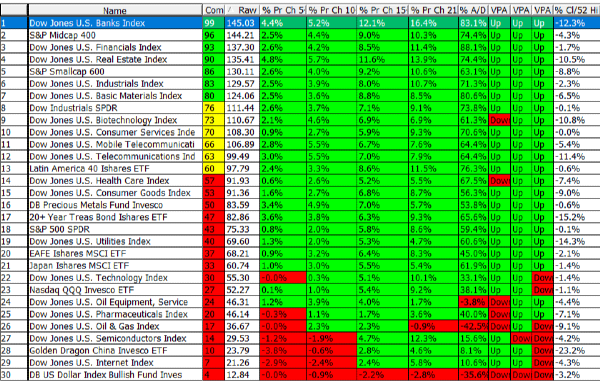

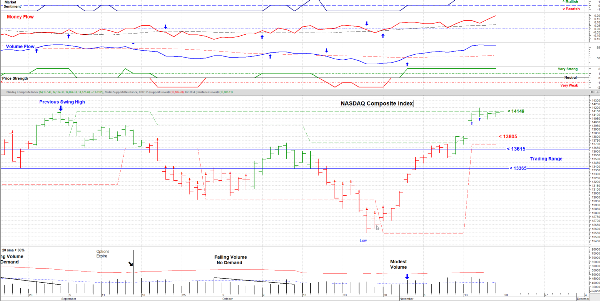










Image by Gerd Altmann from Pixabay
Expertise provided by Kevin Matthews from buildingbread.com
What is a Financial Stock?
A financial stock provides capital services to its customers. These could be people, businesses, organizations, or even governments. Capital services can be very broad but some key activities are the cornerstones of financial stocks.
Bank Deposits and Loans
Bank deposits are a key service provided by banks. This service allows depositors to safely store their capital and also get insurance on its safety by getting guarantees from the government on their deposits and also minimizing risk of theft by pooling their deposits with other depositors.
Banks then use the bulk of the deposits to provide loans to different entities. These loans can range from car loans to house loans all the way to business loans or even short term loans to other banks.
Payment Transactions
Companies like MasterCard (MA), Visa (V), and American Express (AXP) provide payment networks to help rapidly facilitate payment transactions. These companies provide fraud protection and payment protection for unauthorized transactions.
These payment networks also provide temporary capital liquidity by giving user's credit, adding to the purchasing power of individuals and businesses.
Why Buy a Financial Stock?
Financial stocks can provide returns that exceed the overall market. They are drivers of business and commerce. When the stock market goes up, financial stocks will typically move with a higher beta than the overall market.
Strong financial stocks will typically provide stable growth over multiple years. These stocks may have a fortress balance sheet or a niche regional market.
What Makes a Financial Stock Go Up?
The rise in a financial stock's price is influenced by a combination of fundamental, technical, and market sentiment factors. Fundamentally, strong earnings reports, revenue growth, and profitability are key drivers. When a financial company demonstrates consistent performance, such as increasing net income or expanding its market share, investors gain confidence, leading to higher demand for its stock. Additionally, favorable economic conditions, like low interest rates or a robust credit market, can boost financial stocks by improving lending and investment opportunities.
Technical factors, such as trading volume and historical price patterns, also play a role. For instance, if a stock breaks through a resistance level, it may attract more buyers, pushing the price higher. Market sentiment, driven by investor psychology, news, and broader economic trends, can amplify these effects. Positive sentiment, such as optimism about the financial sector's growth, often leads to increased buying activity. Ultimately, a financial stock's price reflects the interplay of these factors, with supply and demand dynamics determining its value at any given time.
Are Financial Stocks Risky?
Financial stocks can be risky due to several factors. They are highly sensitive to economic conditions, such as interest rate changes, inflation, and market downturns, which can impact their profitability. Regulatory changes and compliance requirements also pose risks, as financial institutions must adapt to evolving laws and policies. Additionally, financial stocks may face credit risks, where borrowers default on loans, and liquidity risks, which can affect their ability to meet short-term obligations.
Market volatility is another concern, as financial stocks can experience significant price fluctuations during periods of uncertainty. However, these risks can be mitigated through diversification and thorough research. By understanding the financial health, management quality, and market position of a company, investors can make informed decisions and balance potential rewards with risks.
Do Financial Stocks do Well in a Recession?
Financial stocks often face challenges during a recession due to their sensitivity to economic conditions. As lending slows and consumer spending declines, banks and financial institutions may experience reduced profitability. Additionally, credit risks increase as borrowers struggle to repay loans, and market volatility can impact investment portfolios managed by financial firms. However, certain financial stocks, such as those in defensive sectors or companies with strong balance sheets, may perform relatively well by maintaining stability and offering consistent dividends.
Investors looking to navigate recessions with financial stocks should focus on companies with diversified revenue streams and robust risk management practices. Staying informed about market trends and regulatory changes can also help identify opportunities in the financial sector during economic downturns. While financial stocks may not always thrive in a recession, strategic selection and diversification can mitigate risks and position investors for long-term growth.
Do Financial Stocks Benefit From Inflation?
Financial stocks can benefit from inflation under certain conditions, particularly when interest rates rise in response to inflationary pressures. Banks and other financial institutions often experience increased profitability as higher interest rates lead to larger spreads between the rates they charge borrowers and the rates they pay to depositors. This dynamic can boost revenue for companies involved in lending, mortgages, and credit services. Additionally, insurance companies may see gains as rising rates improve their investment portfolios, which are often tied to fixed-income securities.
However, the extent of the benefit depends on the severity of inflation and its impact on the broader economy. Excessive inflation can lead to economic instability, affecting consumer spending and borrowing, which are crucial drivers for financial stocks. Investors should focus on companies with strong balance sheets and diversified revenue streams to navigate the complexities of inflation. Staying informed about economic trends and monetary policies can help identify financial stocks poised to thrive in inflationary environments.
How are Financial Stocks Affected by Interest Rates?
Financial stocks are significantly influenced by changes in interest rates, as these rates directly impact their core business operations. When interest rates rise, banks and financial institutions often benefit from increased net interest margins—the difference between the interest they earn on loans and the interest they pay on deposits. Higher rates also attract more investment in fixed-income securities, boosting revenues for financial firms. On the other hand, elevated borrowing costs may reduce loan demand, which can limit growth in lending activities.
Conversely, declining interest rates can negatively affect financial stocks by compressing net interest margins, impacting profitability. However, lower rates may stimulate borrowing and consumer spending, which can offset some of these challenges. The extent of the impact varies across different financial sectors, with companies specializing in lending, insurance, and asset management showing varying degrees of sensitivity to rate changes. Investors looking to navigate these dynamics should monitor central bank policies and market trends to make informed decisions about financial stocks in shifting interest rate environments.
Is it Smart to Invest in Bank Stocks?
Investing in bank stocks can be a smart decision, particularly for those seeking exposure to the financial sector's stability and growth potential. Banks often generate consistent revenue from lending, deposits, and financial services, making them appealing during periods of economic expansion. Additionally, many bank stocks pay dividends, providing investors with a steady income stream. Banks also benefit from rising interest rates, as they can increase net interest margins, boosting profitability. These factors make bank stocks a valuable addition to a diversified portfolio.
However, investing in bank stocks comes with risks that should be carefully considered. Banks are highly sensitive to economic cycles and can be affected by factors such as credit risks, regulatory changes, and market volatility. To minimize risk, investors should focus on banks with strong balance sheets, well-diversified revenue streams, and robust risk management practices. Conducting thorough research on the bank's financial performance and understanding market trends can help make informed investment decisions. With careful analysis and a long-term perspective, bank stocks can play a key role in a resilient and rewarding investment strategy.
What to Look for in Financial Stocks?
When evaluating financial stocks, it's important to focus on key factors that indicate stability, growth potential, and resilience. Start by analyzing the company's financial health, including metrics like revenue growth, profitability, and return on equity (ROE). Look for firms with strong balance sheets and consistent earnings performance, as these are indicative of solid management and adaptability to market conditions. Understanding the company's business model and revenue streams—such as lending, investment management, or insurance—can provide insight into its competitive advantage within the financial sector.
In addition to financial metrics, consider external factors like economic trends and interest rate sensitivity, as these can heavily influence financial stocks. Assess the company's risk management practices and regulatory compliance to ensure it operates with stability in diverse economic environments. Dividend-paying financial stocks can also be appealing, providing an income stream alongside potential long-term capital growth. By combining thorough research with a focus on diversification, investors can identify financial stocks that align with their goals and risk tolerance.
Final Thoughts
Financial stocks offer diverse opportunities for investors, with their performance often tied to economic trends, interest rates, and inflation. By understanding the key drivers, such as net interest margins, credit risks, and regulatory changes, investors can make informed decisions about this dynamic sector. While financial stocks can be sensitive to market fluctuations, focusing on companies with strong balance sheets, consistent earnings, and robust risk management practices can mitigate risks and enhance long-term growth potential.
Whether you're considering bank stocks, exploring the effects of interest rates, or evaluating dividend-paying financial firms, thorough research and strategic diversification are crucial. By staying informed about industry trends and aligning your investments with your financial goals, you can confidently navigate the opportunities and challenges presented by financial stocks in a constantly evolving market.